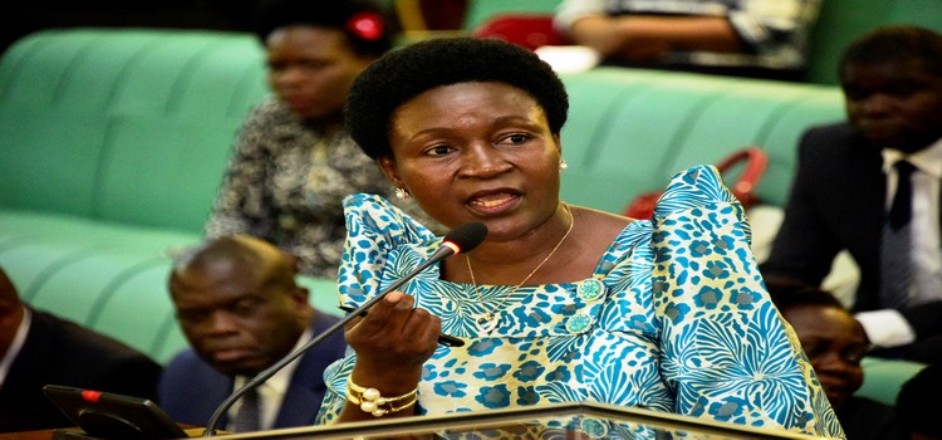Education State Minister, Hon Sseninde
A bill aimed at reforming the Uganda National Examinations Board to enable it regulate and oversee the national examinations has been presented before Parliament.
The Uganda National Examinations Board Bill, 2020 was tabled by the State Minister for Primary Education, Hon. Rosemary Sseninde on Tuesday,14 July 2020 at a sitting chaired by the Speaker, Rebecca Kadaga.
The Bill seeks to define the powers and functions of the Uganda National Examinations Board with regard to preparation, organisation and administration of national examinations; improve standards and quality of national examinations conducted by the Examinations Board and address new and emerging challenges affecting the administration and management of national examinations.
The Bill also seeks to repeal and replace the Uganda National Examinations Board Act, Cap 137 which was enacted in 1983.
“Since 1983, Uganda’s education system has undergone a number of reforms ranging from legal, institutional and policy framework coupled with the socio- economic changes which have affected the operations of the Examinations Board and implementation of the Act,” reads the Bill in part.
The Bill highlights emerging issues due to the changing educational and technological revolution that require review and additional provisions to address them; including systematic measuring and monitoring of the performance of individual pupils, students and schools.
The Bill also cites defects in the existing law such as weak penalties in the Act that need enhancement to make them more meaningful and deterrent to match the objectives of the regulatory framework.
“The powers and functions of the Board under the current UNEB Act are narrow and fall short of providing the comprehensive regime that allows the Board to properly conduct credible and quality examinations,” the Bill states.
Some of the remedies the Bill seeks to achieve include reforming the law relating to the administration and management of primary and secondary national examinations and any other examinations, as well as expanding offences and enhanced deterrent penalties to deter examination malpractice.
The Bill also intends to downsize the Board from its current size of 30 members to match the principles of good governance by removing non-existent positions that were affected partly by the restructuring of Government Ministries, Departments and Agencies in 1998.
Kadaga referred the Bill to the Education Committee for perusal.





